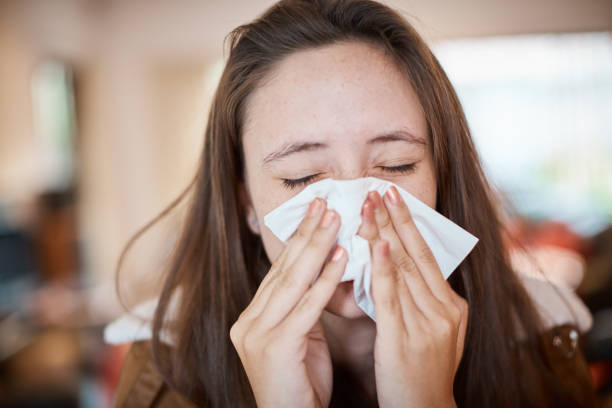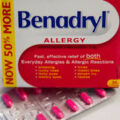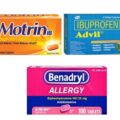
Is there a Non Drowsy Benadryl?
No, there is no such thing as “non-drowsy Benadryl.” The active ingredient in Benadryl is diphenhydramine, which is known to cause drowsiness as a common side effect. However, there are some over-the-counter allergy medications that are formulated to cause less drowsiness.
If you are looking for an similar allergy medication that is less likely to cause drowsiness, you may want to consider one of these options instead of Benadryl.
There are several non-drowsy alternatives to Benadryl, which include:
- Loratadine (Claritin) Loratadine is a second-generation antihistamine that is widely available over-the-counter. It works by blocking the action of histamine, a chemical that is released by the body during an allergic reaction. Loratadine does not cross the blood-brain barrier as easily as first-generation antihistamines, such as diphenhydramine, which means it is less likely to cause drowsiness. It is also longer lasting than diphenhydramine, with a duration of action of around 24 hours.
- Cetirizine (Zyrtec) Cetirizine is another second-generation antihistamine that is available over-the-counter. It works in a similar way to loratadine, blocking the action of histamine. Like loratadine, cetirizine is less likely to cause drowsiness than first-generation antihistamines. However, it may still cause some drowsiness in some people, particularly at higher doses.
- Fexofenadine (Allegra) Fexofenadine is a third-generation antihistamine that is available over-the-counter. It works by blocking the action of histamine, but unlike first-generation antihistamines, it does not cross the blood-brain barrier. This means it is less likely to cause drowsiness. Fexofenadine has a duration of action of around 24 hours.
- Desloratadine (Clarinex) Desloratadine is a third-generation antihistamine that is available only by prescription. It works in a similar way to fexofenadine, blocking the action of histamine without crossing the blood-brain barrier. This makes it less likely to cause drowsiness than first-generation antihistamines. Desloratadine has a duration of action of around 24 hours.
- Levocetirizine (Xyzal) Levocetirizine is a third-generation antihistamine that is available only by prescription. It works in a similar way to cetirizine, blocking the action of histamine. However, it is more potent than cetirizine, which means it may be more effective for people with severe allergies. Like other third-generation antihistamines, levocetirizine is less likely to cause drowsiness than first-generation antihistamines.
- Azelastine (Astelin) Azelastine is an antihistamine nasal spray that is available only by prescription. It works by blocking the action of histamine in the nasal passages, reducing symptoms such as sneezing, itching, and congestion. Because it is administered as a nasal spray, it does not cross the blood-brain barrier as easily as oral antihistamines, which means it is less likely to cause drowsiness.
- Montelukast (Singulair) Montelukast is a leukotriene receptor antagonist that is available only by prescription. It works by blocking the action of leukotrienes, chemicals that are involved in the inflammatory response in the body. This can help to reduce symptoms of allergies and asthma, such as inflammation and swelling. Montelukast is not an antihistamine, so it does not block the action of histamine. However, it can be used in combination with antihistamines to provide additional relief from allergy symptoms. Montelukast is less likely to cause drowsiness than antihistamines, making it a good option for people who need to remain alert during the day.
- Nasal decongestants Nasal decongestants, such as pseudoephedrine (Sudafed) and phenylephrine (Sudafed PE), are available over-the-counter and can provide relief from nasal congestion caused by allergies. They work by constricting the blood vessels in the nasal passages, which reduces swelling and opens up the airways. Nasal decongestants do not cause drowsiness, but they can have other side effects, such as increased heart rate and blood pressure.
- Steroid nasal sprays Steroid nasal sprays, such as fluticasone (Flonase) and mometasone (Nasonex), are available over-the-counter and by prescription. They work by reducing inflammation in the nasal passages, which can help to relieve symptoms such as sneezing, itching, and congestion. Steroid nasal sprays do not cause drowsiness, but they can have other side effects, such as dryness and irritation of the nasal passages.
- Cromolyn nasal spray Cromolyn nasal spray (NasalCrom) is available over-the-counter and works by preventing the release of histamine and other chemicals that cause allergy symptoms. It can be used to prevent symptoms from occurring, rather than treating them once they have already started. Cromolyn nasal spray does not cause drowsiness or have other significant side effects.
- Eye drops Antihistamine eye drops, such as ketotifen (Zaditor) and olopatadine (Patanol), are available over-the-counter and by prescription. They work by blocking the action of histamine in the eyes, reducing symptoms such as itching, redness, and swelling. Antihistamine eye drops do not cause drowsiness, but they can have other side effects, such as stinging or burning.
- Allergy shots Allergy shots, also known as immunotherapy, involve receiving regular injections of small amounts of allergens over a period of several years. This helps to desensitize the immune system to the allergen, reducing or eliminating allergy symptoms over time. Allergy shots do not cause drowsiness, but they can have other side effects, such as swelling or redness at the injection site.
It is important to talk to your healthcare provider before starting any new medication or treatment for allergies. They can help you determine the best course of action based on your individual needs and medical history. They can also provide guidance on how to minimize side effects and manage any symptoms that may arise.




